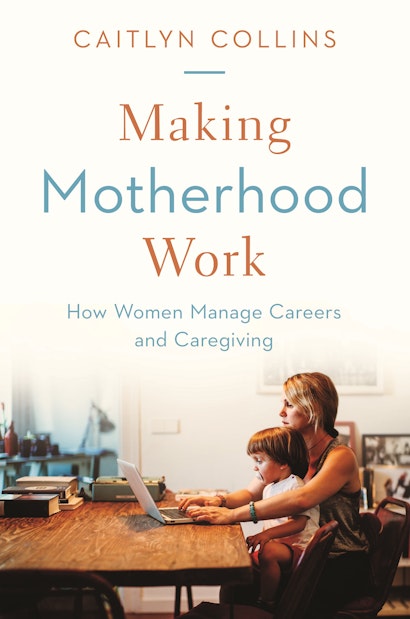This month’s Book Club Pick is Making Motherhood Work: How Women Manage Careers and Caregiving by Caitlyn Collins. I can’t think of a more relevant or timely selection for today’s working parents—especially after the challenges that we’ve faced in the last year. Perhaps one silver lining is that there is finally some recognition of the fact that the work-family conflict that parents experience is a national crisis—and it doesn’t have to be this way. Of all Western industrialized countries, the United States ranks dead last for supportive work-family policies. As we begin to consider possible solutions, this is a must-read book. Making Motherhood Work draws on interviews that Collins conducted over five years with middle-class working mothers in Sweden, Germany, Italy, and the United States. Taking readers into women’s homes, neighborhoods, and workplaces, she explores how women navigate work and family given the different policy supports available in each country. Collins shows that policies alone cannot solve women’s struggles. Easing them will require a deeper understanding of cultural beliefs about gender equality, employment, and motherhood. The Financial Times described Making Motherhood Work as a “rallying cry to value ‘caregiving, as well as the people who provide that care.’” It is a thought-provoking and moving book that will appeal to fans of Anne Marie-Slaughter’s Unfinished Business and Jennifer Senior’s All Joy and No Fun.
The discussion questions below are meant to guide your conversations, and we encourage you to share highlights from your discussion—and pictures!—via social media, using hashtag #ReadPUPforBookClub. And be sure to check out the message from Caitlyn Collins, too.
Discussion Questions
- Caitlyn Collins notes that “women’s work-family conflict is a national crisis.” Do you agree or disagree and why?
- In 2013, the UN and the World Economic Forum ranked Sweden as the most gender-egalitarian nation in the world and first for women’s economic opportunities. Their policies are often looked to as a model for others. As you read the details of their work-family policy, did anything surprise you? Discuss some of the advantages of the policies, both inside and outside the home.
- The Swedish welfare system and society generally expect all adults, including mothers, to engage in paid work. Are there any unintended consequences of this system?
- The German case is particularly useful in illuminating the ways in which policy alone cannot change things for women. How were the experiences of women in East Germany different from those in the West?
- How does the cultural trope of the mammoni (“mama’s boys”) in Italy come into play in discussions about the division of household labor?
- Collins notes that the Italian women were unique in “working the system” to try to resolve their work-family conflict. Did you feel sympathetic towards this strategy? Why or why not?
- What was the most striking difference in how the American women experienced work-family conflict and stress as compared to the women from Sweden, Germany and Italy?
- Throughout the book, many of Collins’ respondents talk about what it means to be a “good mother.” Discuss the similarities and differences in each country.
- Compare and contrast the practicality and experience of part-time work in Sweden, Germany, Italy, and the United States.
- If you were to advise an American politician about which policies might improve the situation in the United States, what would you suggest and why?
av������ the Author
Caitlyn Collins is assistant professor of sociology at Washington University in St. Louis. Her work has been covered by the New York Times, NPR, and the Washington Post.

